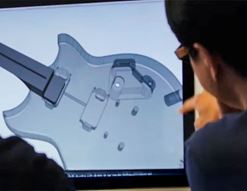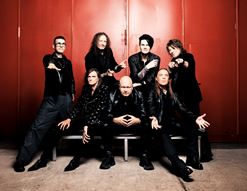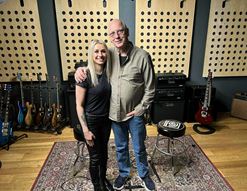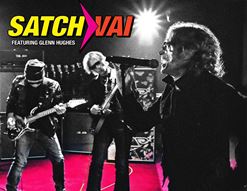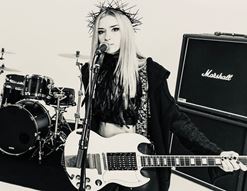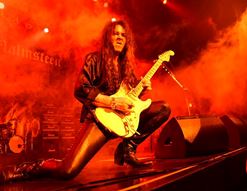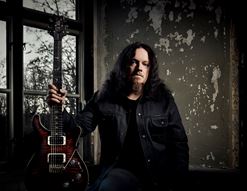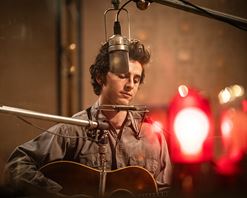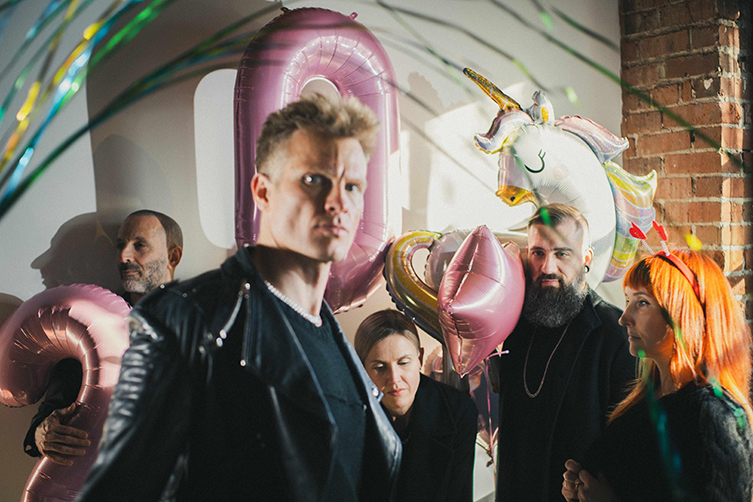
It’s a funny world when a band can garner 9 billion streams and not quite be a household name in the UK. This is true of Mother Mother, who’ve been doing great things for 20 years from their home of Quadra Island, Canada.
The band’s nucleus are siblings Ryan and Molly Guldemond, who are back this month with brand new album Nostalgia. Previously, the band have enjoyed staggering streaming figures after songs like My Heart and Touch Up became viral hits on Tik Tok, driving their success beyond all of their collective expectations.
I caught up with Ryan via email recently to chat about inspiration, texture and the real meaning of success…
Mother Mother Interview
guitarguitar: Your music is filled with interesting textures. Do you tend to think of music in textural forms as much as in notes? Do textures occur later in your writing process?
Ryan Guldemond: There are so many textural words in music-speak: grainy, fuzzy, gushy, and so on. I have to laugh sometimes when we’re in the studio, trying to put our ideas into words—it must sound completely nonsensical to an outsider. So yes, texture is a huge part of the conversation, but it typically comes into play after a song has been written. I never sit down intending to write a “glassy” song if you know what I mean.
gg: When writing, do you find it helpful to stick to an overarching theme? Can that also be limiting? (Of course, limitations can be useful too!)
RG: A central theme that ties a body of work together is a beautiful thing. When I stumble upon a concept that feels right, I start seeing it everywhere—like the Baader-Meinhof phenomenon. It rarely feels limiting, because any theme can be stretched in so many directions and put through the metaphor machine. That said, I have no problem with an album full of songs that aren’t thematically connected. I only have a problem with an album full of songs that aren’t good!
gg: Do you write more music than you need for a particular release, and then cherry-pick the best songs? If so, how easy do you find that process?
RG: Yes, I write way more music than what actually makes the cut. But music is different from finished songs. A musical idea is usually just a verse and chorus or melody and chords—lyrics are optional, and mostly it’s gibberish. It’s pretty easy to bang these out; there could be hundreds of these little kernels born during the album-making process. But turning the good ones into full songs, with strong arrangements and lyrics that feel just right, is a process I’d rate from difficult to very difficult. In the end, there are about as many finished songs as what ends up on the album.

gg: How easily does inspiration come to you?
RG: Quite easily, but that’s largely due to a shift in philosophy I had a few years ago, when I clarified creativity’s role in my life. I create because it brings me joy, peace, and a sense of connection to something greater than myself. It’s spiritual. I don’t create to be good or successful - chasing that is a fast track to writer’s block. Once I took the pressure off and made it about love instead of ego, inspiration was everywhere.
gg: Nostalgia: is it a good thing or a dangerous thing for an artist to indulge in?
RG: It’s a helluva drug, and the poison’s in the dose. I can only listen to our first album every so often, because to me it’s pure magic. Something was in the air and those songs just fell from the sky. I don’t even remember writing them, but I remember how intoxicating it all was. It’s useful to revisit that feeling to remind myself what’s possible, but if I dwell there, I can get depressed.
gg: When writing on the guitar, what qualities do you need in a good ‘songwriting’ guitar?
RG: I like crappy acoustic guitars with lots of character and secrets. Writing a song is a bit like handing it all over to God, or whatever you want to call it. You kind of have to prostrate yourself; it’s humble as hell. A broken guitar seems like the right place to start.
gg: I love the colours and sound in Nostalgia’s production. Do you try chords or melodies out on different instruments to see how they might sound? Were there particular keywords or references guiding the album’s sound?
"Once I took the pressure off and made it about love instead of ego, inspiration was everywhere"
RG: Thank you! We didn’t do a lot of round-robin instrument swapping for ideas—it just felt obvious what should play what. But we definitely talked a lot about what we wanted the album to sound like, and more accurately, what we didn’t want it to sound like. We bullied heavily on compression. “Not too compressed,” “take off the compression,” or “I hate compression” were common phrases. Compression is awesome, but when overused, the mix starts to feel clamped down. We wanted this record to sound “open.” We said “open” a lot.
gg: Nine billion streams? I can hardly comprehend that! Has that success affected (positively or negatively) your approach to writing and producing?
RG: It’s surreal, but we try not to let numbers dictate our process. While we’re aware of the audience and our reach, we do our best to forget about them when we’re creating. That’s the best thing for the music, for ourselves, and for the listeners. They don’t want to hear something that was strategized for them to like.
gg: What does that level of streaming success mean to you on a personal and professional level?
RG: We do this for the joy of creating and connecting with people through music. That’s the real success. But we’re deeply grateful for the other kind of success because it allows us to keep doing what we love, fully and completely.
gg: Do you have any tips for other artists looking to build an online audience or increase their streams?
DG: First, make something you absolutely adore. Then, when promoting it online, be authentic, consistent, and engage with your listeners. Share your process, not just the finished product. Build real connections with your audience. Forget about the numbers.
I like it! Forget about the numbers. Perhaps that’s easy to say when you have nine billion streams, but I like the sentiment nonetheless! I get the feeling that Ryan isn’t watching the counters ticking over, and that’s probably for the best.
Mother Mother’s brand new album, Nostalgia, is out on June 6th wherever you get your music! Keep up with the band on the official Mother Mother website. Head to the guitarguitar Interviews section for over 200 EXCLUSIVE artist interviews!


